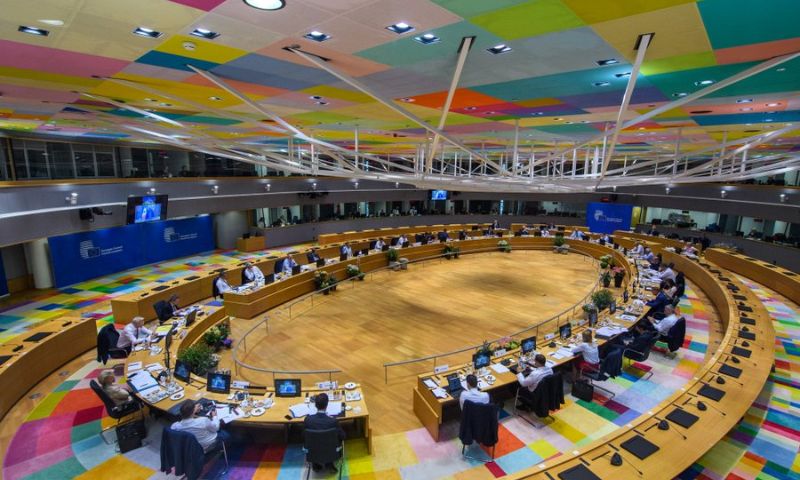BRUSSELS: Migration dominated the agenda as EU leaders convened in Brussels on Thursday, with many governments eager to project a tough stance following recent hard-right gains across Europe. However, consensus on a definitive course of action remained elusive.
Discussions centered around easing deportations, establishing processing centers outside the EU, and expediting the implementation of a recently negotiated migration deal. This summit highlighted a rightward shift in the bloc’s rhetoric.
Italy’s hard-right Prime Minister Giorgia Meloni hosted a mini-summit with ten like-minded countries, including Denmark, the Netherlands, Hungary, and Greece, alongside EU chief Ursula von der Leyen. “We need to think outside the box to address this pressing concern,” Greek Prime Minister Kyriakos Mitsotakis stated.
Yet, divisions persisted among the EU’s 27-member states, particularly regarding the contentious proposal for return “hubs” outside the EU. German Chancellor Olaf Scholz dismissed the idea, calling it insufficient to tackle the migration challenges faced by large countries. “If we all adhered to our shared rules, we would be much further ahead,” he remarked.
Germany, advocating for the swift implementation of a landmark migration pact established this year—which tightens border procedures and mandates that countries either accept asylum seekers from frontline states or contribute resources—expressed concerns that the package, set to take effect in June 2026, may be inadequate.
A majority supported a proposal to expedite the deportation of irregular migrants and explore other “innovative solutions,” with Meloni promoting Italy’s agreement with Albania to transfer some migrants there. Other EU capitals expressed interest, and von der Leyen suggested the bloc would learn from this initiative.
Discussions also included potential solutions for returning some Syrian refugees to Syria, according to a diplomatic source. Germany tightened border controls in September following several suspected Islamist attacks, while Poland announced plans to partially suspend asylum rights, accusing Russia and Belarus of pushing migrants over its border.
“There is a new wind blowing in Europe,” remarked Dutch politician Geert Wilders, whose nationalist party topped the polls in the Netherlands last year. Wilders was in Brussels for a separate meeting of the far-right Patriots for Europe group.
Hard-right parties, often leveraging anti-immigrant sentiment, performed well in recent European Parliament elections and national votes in Austria and Germany. France also shifted rightward after a snap parliamentary election this summer.
The contentious nature of migration led to the failure of a similar overhaul effort in 2018. Belgian Prime Minister Alexander De Croo said, “All these so-called ‘migration hubs’ have proven ineffective and costly in the past. What works are broader agreements with third countries.”























